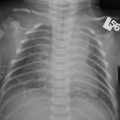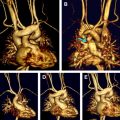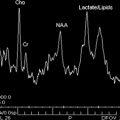Immediate or early postnatal onset forms of neurometabolic disorders represent a clinically important subgroup because these often present as a life-threatening episode of metabolic decompensation shortly after birth. This article focuses on this group of diseases, often referred to as “devastating neurometabolic diseases” of the newborn. Awareness of the most common entities and their clinical, biochemical, and diagnostic imaging manifestations is important because if undiagnosed and untreated, the diseases may have catastrophic consequences. Although formal diagnosis relies on laboratory tests, diagnostic imaging is often pivotal in both reaching the correct diagnosis and/or orienting further targeted investigative efforts.
Inborn errors of metabolism may present clinically with systemic metabolic abnormalities (eg, acidosis, ketosis, ketoacidosis, or hypoglycemia) or clinical signs and symptoms related to the involvement of one or more of the organ systems, such as the central and the peripheral nervous system (white matter disease, gray matter disease, or most commonly a combination of the two), the musculoskeletal system (myopathy, dysostosis), some of the visceral organs (cardiomyopathy, hepatosplenomegaly), the anterior visual system (cataract, retinal degeneration), or even the skin (alopecia, dermatitis, petechiae). Diseases in which the clinical manifestations are exclusive to or dominated by signs and symptoms of central nervous system (CNS) involvement are referred to as neurometabolic diseases.
The age of onset of the clinically manifesting disease is a significant confounder in the remarkable clinical phenotypic variability of inborn errors of metabolism. (Please note: in inborn errors of metabolism, the enzyme deficiency may be compensated by maternal [in utero] or other mechanisms for a variable amount of time before the clinically manifesting disease actually develops.) Most metabolic disorders are known to have early (neonatal, infantile) or later (juvenile, adult) onsets, as a function of effective (residual) enzyme activity. As a general rule, early onset indicates a more profound enzymatic dysfunction and severe, often therapy-resistant disease, whereas later-onset forms are typically associated with a more benign and manageable clinical course, but of course many exceptions to this “rule of thumb” are known too.
In addition to the typically more severe clinical systemic manifestations, early-onset metabolic disorders are important from a different point of view. The developing brain (both in utero and postnatally) is particularly vulnerable to any noxious process that may interfere with its normal development. In the context of metabolic decompensation, patients often present in critical conditions, and the underlying disease may not be known or may mimic other more common diseases (infection, gastrointestinal problems); hence, prompt and efficient diagnostic workup strategies are needed to prevent serious sequelae. Diagnostic imaging has a significant and well-established role in that scheme; nonetheless, it is important that available modalities and techniques be used judiciously, adequately, and efficiently. At present, the diagnostic imaging workup of CNS involvement in inborn errors of metabolism heavily relies on magnetic resonance (MR) imaging, which includes conventional (“anatomic”) and advanced (“physiologic” or “functional”) techniques (diffusion-weighted and diffusion tensor imaging, proton MR spectroscopy). The comprehensive MR imaging evaluation of inborn errors of metabolism takes into account all structural and “functional” lesion pattern elements revealed by anatomic and pathophysiologic MR imaging data to enhance the sensitivity and specificity of the diagnostic workup process.
General considerations
The most severe inborn errors of metabolism of neonatal onset fall into the category of devastating metabolic diseases ( Box 1 ).








